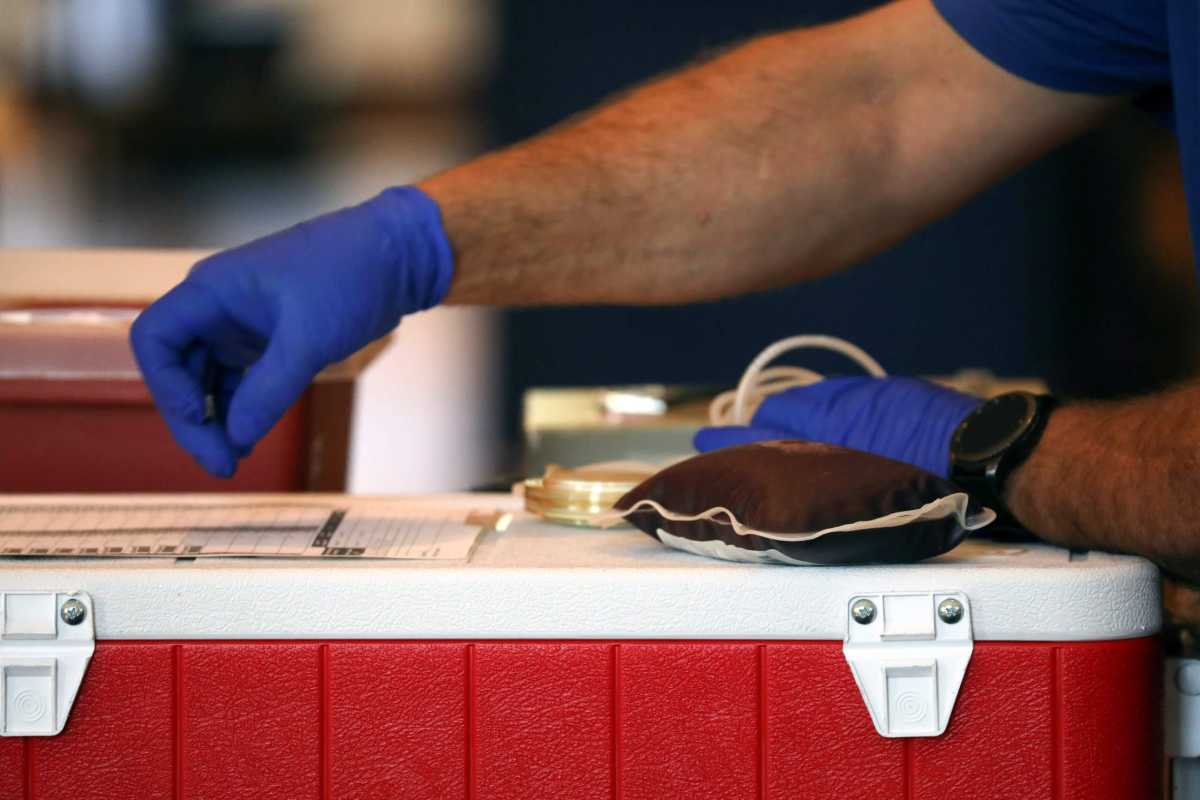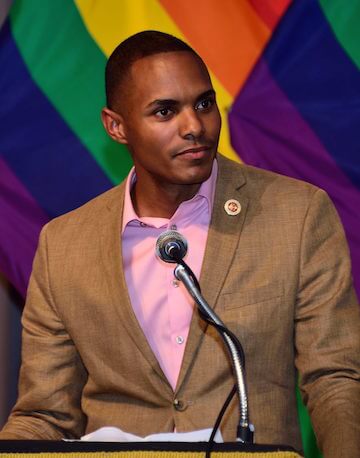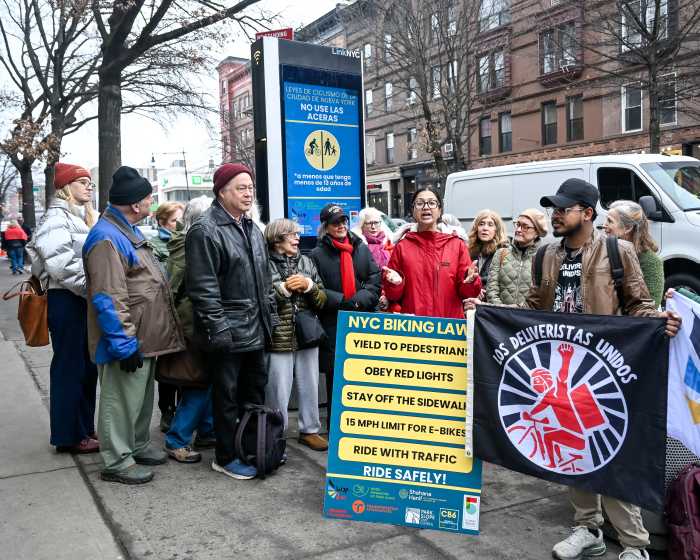After a blood shortage sparked by the coronavirus crisis led to a barrage of calls for the Food and Drug Administration to lift its ban on gay and bisexual men donating blood, the federal agency responded on April 2 by incrementally loosening the oft-criticized ban.
The FDA now will allow men to donate blood as long as they have not had sex with another man in the last three months, which means that a significant share of queer men will still not be able to donate blood. The policy, which was originally implemented during the AIDS crisis in 1983 and imposed a lifetime blood ban on men who have sex with men and women who have sex with those men, was first revised in 2015 to allow men who have sex with men to donate blood as long as they were abstinent for an entire year.
The policy’s updated timeframe also applies to women who have had sex with gay or bi men, while restrictions were also eased on other demographics: Individuals with recent tattoos and piercings will also see the deferral period dropped from 12 months to three months, as well as those who have spent time in areas known for having cases of malaria.
There still appears to be a lack of clarity regarding how — or whether — the policy impacts transgender or non-binary individuals. The FDA’s website features a Q&A section, including a question asking “How do the recommendations apply to transgender individuals?” But an indirect answer follows, stating, “The FDA’s recommendation to blood establishments is that in the context of the donor history questionnaire, male or female gender should be self-identified and self-reported for the purpose of blood donation.” The establishment of a self-identification process does not answer the question of whether or not transgender or non-binary people are eligible to donate. The American Red Cross, however, interprets the policy to mean that “there is no deferral associated with being transgender.”
In a more dramatic shift, the indefinite deferral on donations by sex workers and injection drug users has been reduced to a three-month deferral, as with gay and bisexual men and their partners.
The FDA elaborated on its latest update on its website April 2.
“To help address the critical need and increase the number of donations, the FDA is announcing today that based on recently completed studies and epidemiological data, we have concluded that the current policies regarding eligibility of certain donors can be modified without compromising the safety of the blood supply,” the agency noted. “The policy changes that we are announcing for immediate implementation are set out in three guidance documents and are expected to remain in place after the COVID-19 public health emergency ends.”
Despite resistance within the FDA, the ban has been denounced for decades, dating back to at least 1997 when the American Association of Blood Banks called for the policy to be re-evaluated. The ban has remained despite reassurances that blood screening technology known as the Nucleic Acid Test can identify HIV in blood in such a reliable manner that a blood donor recipient only has a 1 in 1.47 million chance of exposure to HIV-positive blood.
As the coronavirus crisis led to demand for blood donations, out gay Manhattan State Senator Brad Hoylman was among the early voices to press the FDA to ditch the outdated policy. Soon after, out gay Councilmembers Daniel Dromm, who chairs the Council’s LGBT Caucus, and Ritchie Torres were among others to stand with Hoylman in pressuring the FDA.
By April 1, New York Congressmembers Alexandria Ocasio-Cortez and Carolyn Maloney also sent the FDA a letter calling for changes, writing that the ‘antiquated policy is not based on current science, stigmatizes the LGBTQIA+ community, and undermines crucial efforts to increase the nation’s blood supply as the United States grapples with the coronavirus crisis.” A coalition of Democratic US senators, including Cory Booker, Sherrod Brown, Tammy Duckworth, Kamala Harris, Amy Klobuchar, Bernie Sanders, and Elizabeth Warren, also wrote to the FDA with the same plea.
Queer organizations joined the chorus, including GLAAD, which drew more than 20,000 signatures in a campaign to change the FDA policy. The organization reacted to the news on April 2 with a sense of cautious optimism.
“LGBTQ Americans can hold their heads up today and know that our voices will always triumph over discrimination,” GLAAD president and CEO Sarah Kate Ellis said in a written statement. “This is a victory for all of us who raised our collective voices against the discriminatory ban on gay and bisexual men dating blood. The FDA’s decision to lower the deferral period on men who have sex with men from 12 months to three months is a step towards being more in line with science, but remains imperfect. We will keep fighting until the deferral period is lifted and gay and bi men, and all LGBTQ people are treated equal to others.”
Hoylman also responded to the policy change, saying in a written statement that the Trump administration caved under “enormous pressure” from the LGBTQ community
‘I applaud the activists and elected officials who joined this fight — and celebrate their accomplishment in pushing the federal government to make this step,” Hoylman said. “It cannot be ignored that in the midst of a generational public health crisis, the Trump Administration is continuing to restrict many gay men from donating blood. There’s a nationwide blood shortage that’s putting lives at risk, yet the FDA will continue to reject blood donations from gay men who are married, partnered, or otherwise non-celibate. The FDA must fully end the ban on gay men donating blood. The LGBTQ community deserves nothing less.”
As noted in Hoylman’s letter to the FDA, removing the ban entirely is expected to lead to significant improvements in blood supply. In 2014, the Williams Institute at UCLA Law School found that lifting the ban would bolster the overall blood supply by four percent, or 615,000 pints each year, which could translate into helping 1.8 million Americans.



































